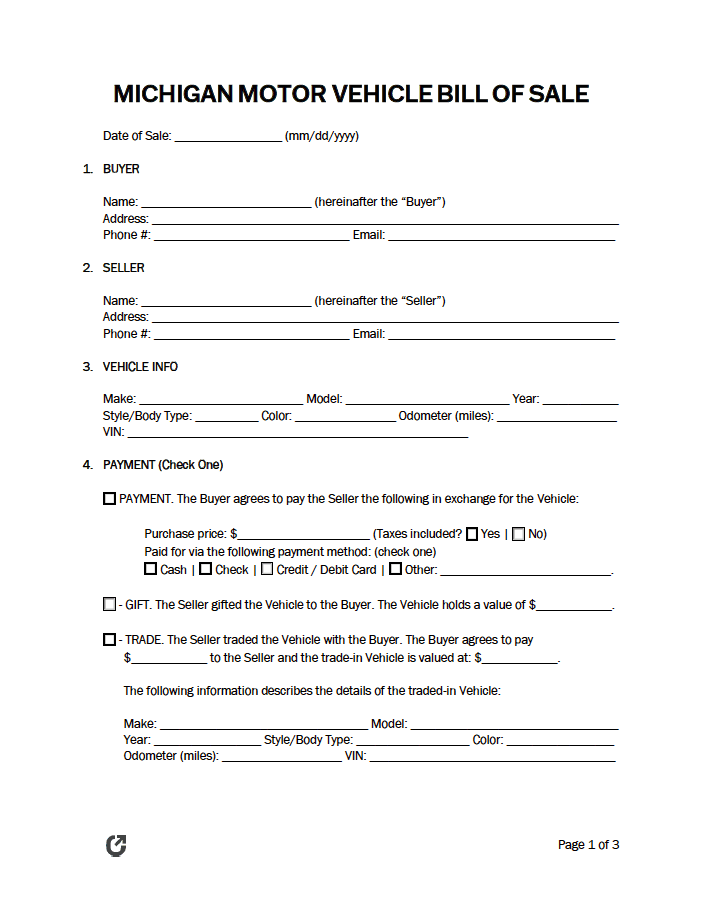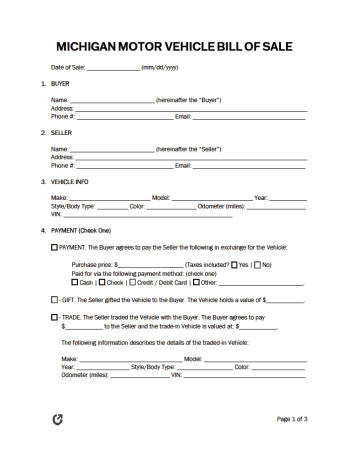Michigan Bill of Sale Forms (5)
A Michigan bill of sale form records the formal exchange of personal property from one to another. It encompasses motor vehicles, firearms, boats, and other valuable possessions. The document also details pertinent information about the item being sold or gifted. It includes the contact information of both the buyer and seller, such as phone numbers, addresses, and email addresses.
Signing requirements
|
Types (5)
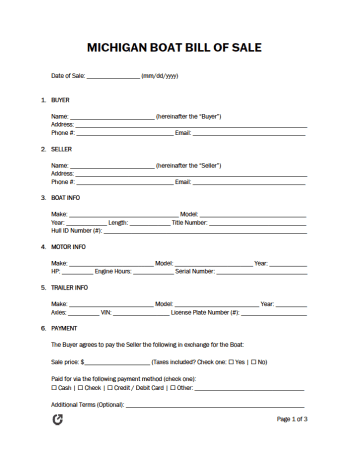 Boat Bill of Sale – A buyer’s proof of purchase for a vessel from a seller.
Boat Bill of Sale – A buyer’s proof of purchase for a vessel from a seller.
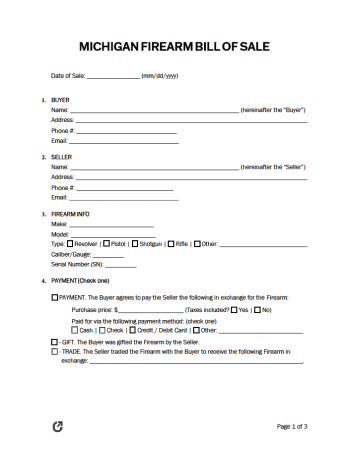 Firearm Bill of Sale – Used to document the transfer of ownership for guns, ammunition, or other related items.
Firearm Bill of Sale – Used to document the transfer of ownership for guns, ammunition, or other related items.
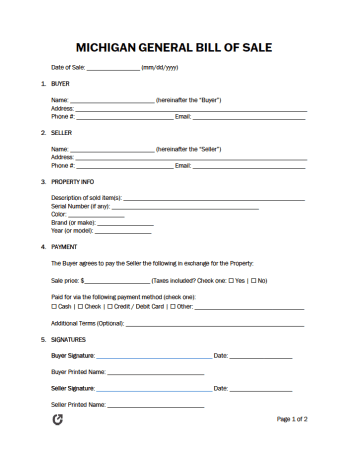 General Bill of Sale – Documents a sale of an item from one person to another.
General Bill of Sale – Documents a sale of an item from one person to another.
|
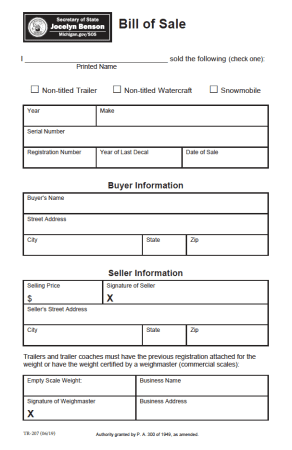 Trailer/Watercraft/Snowmobile Bill of Sale – Completed to outline a deal between two parties involving a trailer, a snowmobile, or watercraft.
Trailer/Watercraft/Snowmobile Bill of Sale – Completed to outline a deal between two parties involving a trailer, a snowmobile, or watercraft.
Download: PDF
Signing Requirements
| Bill of Sale Type | Buyer Signature | Seller Signature | Notarization |
| Boat | Required | Required | Not required |
| Firearm | Required | Required | Not required |
| General (others) | Required | Required | Not required |
| Motor Vehicle | Required | Required | Not required |
| Trailer/Watercraft/Snowmobile | Not required | Required | Not required |
Registration Forms: Boats
|
Registration Forms: Vehicles
|
Additional (Optional) Documents
- Michigan Motor Vehicle Power of Attorney – Signed by the vehicle owner to allow an agent to make decisions regarding the vehicle.
Registration Forms: Trailers
|
